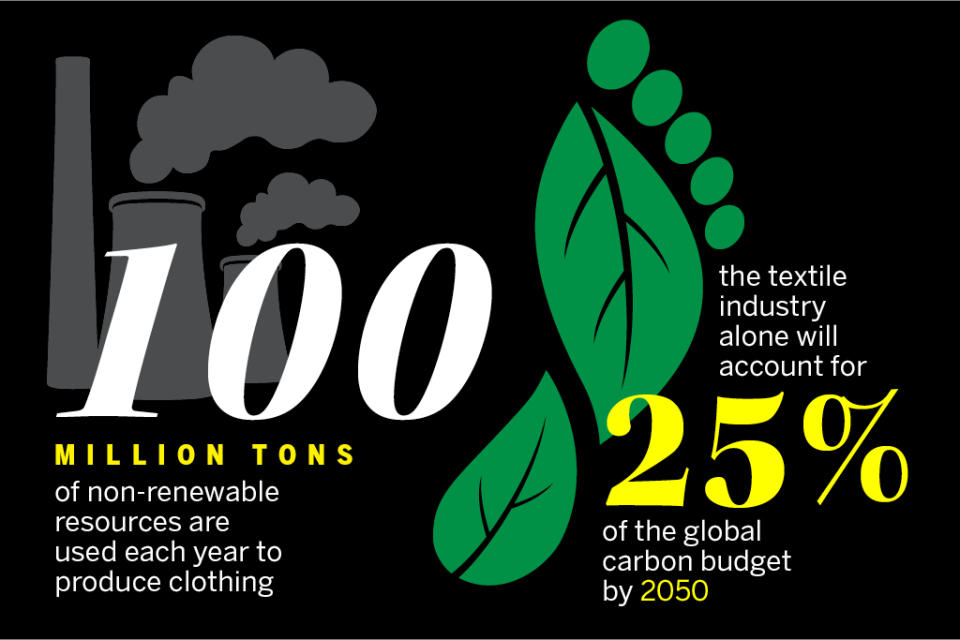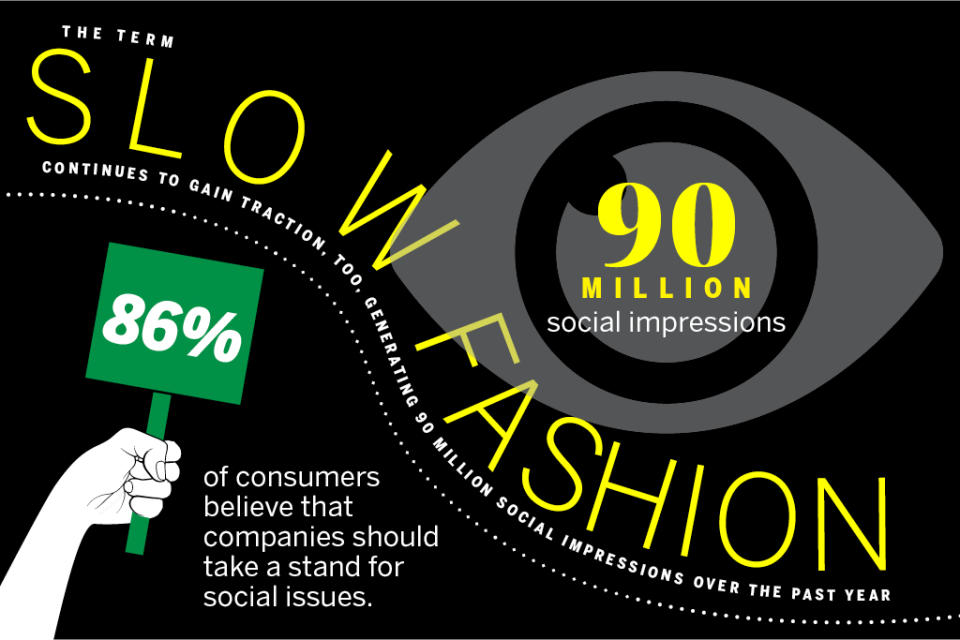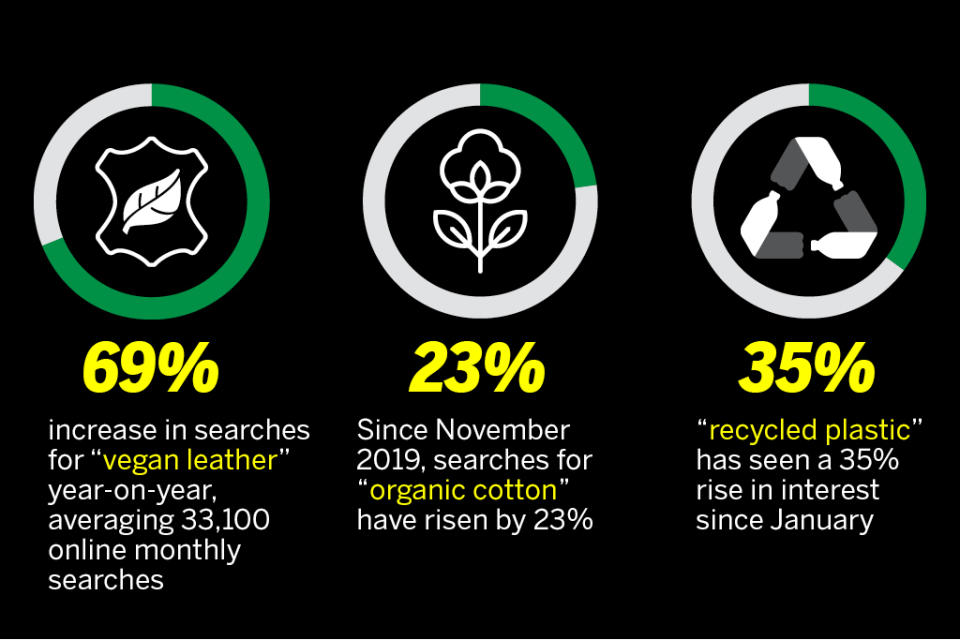Can the Coronavirus Be a Catalyst for Sustainability? It’s Complicated

Click here to read the full article.
While the world is on pause, mother nature has hit the reset button. Since the coronavirus pandemic started, one positive impact of an international lockdown — which has halted travel, production and consumption — is the marked decline in pollution.
While much of this activity will eventually resume, there’s no doubt that the coronavirus onslaught will spur dramatic, long-term change across the industry — and the sustainability conversation is front and center.
More from Footwear News
Adidas Is Now Making Face Shields With the Company That Helps Produce Its 3-D Printed Sneakers
Lost Your Job Amid Coronavirus? You Could Get Federal Aid as Soon as This Week
“People will come out of this supporting initiatives and brands that have responsibility as part of their core existence,” said Ryan Babenzien, CEO and founder of Greats. “And not those who are creating marketing opportunities, but actually the companies who are doing the work to improve the product life cycle, the supply chain and avoid the hyper trends that dominated our industry for the better part of 20 years.”
Reversing decades of environmental impact won’t be easy. As it stands, more than 100 million tons of nonrenewable resources are used each year to produce clothing, and by 2050, the textile industry alone could account for 25% of the global carbon budget, according to data from the Ellen MacArthur Foundation: Make Fashion Circular.

But now there are fresh indications that a sustainability revolution could take hold. Already, brands from Rothy’s to Reformation have responded to consumers’ demands for eco-friendly products. The term “slow fashion” continues to gain traction, generating 90 million social impressions over the past year, according to Lyst’s 2020 Conscious Fashion Report. And since the spread of COVID-19, experts believe consciously consuming is more top of mind than ever.
Based on a new report by sustainability marketing agency Shelton Group, 86% of consumers believe that companies should take a stand for social issues. Founder and CEO Suzanne Shelton believes that number is only going to rise as a result of the coronavirus.
“We will see a shift in how consumers view their lives,” the executive told FN. “We will reevaluate what we need and what we buy, who we buy from and who we work for. Because what is happening now just shows how unsustainable our current system is. Consumers won’t say it in those words, but it’s clear [that] what we do have doesn’t work. It’s all based on consumption. If people aren’t consuming, then companies aren’t making money and people are out of work.”

Shelton said companies must use this moment to take a stand for circularity and sustainability, and those that do will thrive in the future. “Established brands have the scale, supply chain, distribution network — they are best suited to figure out this huge problem,” she added. “New sustainably oriented brands are here to challenge the old guys to be better. The fundamental problem is telling corporate America to shrink rather than grow.”
Small luxury vegan brand Aera is struggling to stay afloat amid the pandemic, but founder Tina Bhojwani believes there is a silver lining. “We will have a new value system and a respect for each other and our environment,” she said. “We’ll have a reassessment of our human needs, whereby ethical and more mission-oriented companies will gain revenues.”
Consumer behavior is already shifting. In its sustainable fashion report, released last week, Lyst said searches for “vegan leather” have increased by 69% year on year, averaging 33,100 online monthly searches. It should be noted that “vegan leather” can be a misunderstood term since most of it is just plastic.
Lyst also said that since November 2019, searches for “organic cotton” have risen by 23%, while “recycled plastic” has seen a 35% rise in interest since January. Eco-friendly brands, such as a Veja and Stella McCartney, are seeing the results. Veja, for instance, is Lyst’s most-searched sustainable sneaker brand, with its Campo style becoming the most-wanted non-leather product over the past 12 months.

Still, while the data is encouraging, the health crisis could also fuel disturbing environmental trends. For example, plastic water bottles are seeing a surge, while bans for single-use plastic bags have been pushed back due to coronavirus concerns.
“The panic buying started,” said Shaina Kaye, senior content strategist at sustainability marketing firm KSVC. “When times are good and we aren’t overcome with the anxiety of a pandemic, people can devote more time to being a more responsible consumer, but when it comes to the pandemic, it’s buying what works.” Economic issues factor in, too, she said. “People are going to tighten their belts. The more expensive brands tend to be the more sustainable. People may not be able to afford that so how do sustainable brands reconcile that?”
One way to take advantage of the time is to show brand purpose rather than push product.
For instance, Patagonia temporarily shut down all its operations in North America, including online orders, while its food business, Patagonia Provisions, remains open for shoppers to order “responsibly sourced, shelf-stable and nutritious” food.
“Consumers will wake up and realize they don’t need as much stuff as they thought they did, and by acting with their wallet, they should support brands that are more responsible and ignore the ones that are not,” Babenzien concluded. “Being responsible in this crisis to me means giving something back to help those who have the most need.”
Sign up for FN's Newsletter. For the latest news, follow us on Facebook, Twitter, and Instagram.

